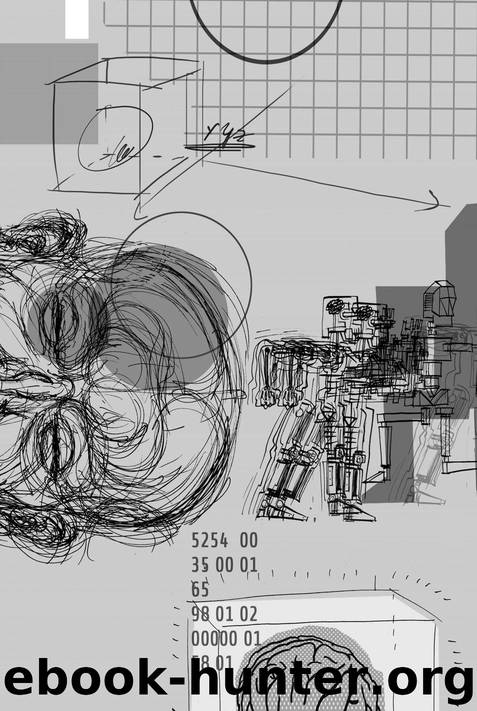Economics of Good and Evil by Tomas Sedlacek

Author:Tomas Sedlacek
Language: eng
Format: mobi, epub
Tags: economics, philosophy
Published: 2012-03-12T01:04:34.330000+00:00
5
Descartes the Mechanic
The standpoint of economic theory is Cartesian.
These are the roots of the homo oeconomicus,
as narrow a concept of man as can be imagined . . .
Piero Mini
Myths, faith, and religious teachings were thus far a determining key for explaining the surrounding world, including its “economic” characteristics. The arrival of the scientifi c era brought changes with it (or, as we will later see, should have brought changes). The era of scientifi c thought set a goal of pushing through a method of examining the world that would not allow doubt and would be free of any subjective, disputable dimension.
Perhaps the most important characteristic of the modern era has been the change in emphasis from the question why? to the question how? This shift is, so to speak, from essence to method. The scientifi c era has tried to demystify the world around us, to present it in mechanical, mathematical, deterministic, and rational garments and to get rid of axioms that cannot be empirically confi rmed, such as faith and religion. But alas, even in the dimension of how? the world around us to this day certainly keeps its secrets—and needs faith and belief to function.
While economics is classifi ed as a social science, it relies the most (mainly mainstream economics) on a mechanical, mathematical, deterministic, and rational world. Thus, it is important to give appropriate attention to this tectonic maneuver. Understanding of the ideas of René Descartes has crucial importance for economists who consider these things, because “an economic position is Cartesian.” 1
MAN AS MACHINE
Descartes’s scientifi c approach to perceiving the world unquestionably represented a huge breakthrough, and this is doubly true for economists.
We have seen that the notion of the invisible hand of the market existed long before Smith. Homo economicus has gained his (a)moral side from 1 Mini, Philosophy and Economics, 24.
171
172
Ancient Economics and Beyond
Epicurus, but he acquired his mathematical and mechanical part from René Descartes. Mathematics was considered the original principle of all things as early as the Greek philosopher Pythagoras 2 (completely in the spirit of the postmodern era, where our current viewpoints are created only through recycling and combining past stories). Descartes’s ideas, of course, became absolutely key, if not determining, for the methodology of economic science. Economics started to develop at the time when his legacy received widespread recognition. The fi rst economists widely discussed theories of knowledge, and all have proven to be successors to Descartes. His ideas were brought to England by John Locke and David Hume. Through them, Descartes’s teachings penetrated economics as
well—and they have remained fi rmly built into it to this day. In no other social science were the Cartesian ideas accepted with as much enthusiasm as in economics. What did the greatness of Descartes consist of, and what was the fundamental signifi cance of his theories for economists?
Descartes is widely and to a degree deservedly considered a key founder of modern science. 3 He changed seeing the world 4 and the anthropological understanding of the existence of man immediately in several areas.
Download
This site does not store any files on its server. We only index and link to content provided by other sites. Please contact the content providers to delete copyright contents if any and email us, we'll remove relevant links or contents immediately.
International Integration of the Brazilian Economy by Elias C. Grivoyannis(57296)
The Radium Girls by Kate Moore(10903)
Turbulence by E. J. Noyes(7033)
Nudge - Improving Decisions about Health, Wealth, and Happiness by Thaler Sunstein(6629)
The Black Swan by Nassim Nicholas Taleb(6185)
Pioneering Portfolio Management by David F. Swensen(5600)
Rich Dad Poor Dad by Robert T. Kiyosaki(5140)
Zero to One by Peter Thiel(4818)
Man-made Catastrophes and Risk Information Concealment by Dmitry Chernov & Didier Sornette(4731)
Secrecy World by Jake Bernstein(3774)
Millionaire: The Philanderer, Gambler, and Duelist Who Invented Modern Finance by Janet Gleeson(3566)
Skin in the Game by Nassim Nicholas Taleb(3456)
The Age of Surveillance Capitalism by Shoshana Zuboff(3413)
The Money Culture by Michael Lewis(3278)
Skin in the Game: Hidden Asymmetries in Daily Life by Nassim Nicholas Taleb(3259)
Bullshit Jobs by David Graeber(3173)
The Dhandho Investor by Mohnish Pabrai(3162)
The Wisdom of Finance by Mihir Desai(3070)
Blockchain Basics by Daniel Drescher(2884)
